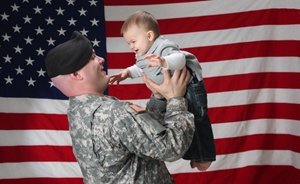Men and women who have a spouse serving overseas face a wide variety of challenges, but second lady Dr. Jill Biden did not know just how difficult it was having a loved one deployed in a war zone until she experienced it herself. In 2008, her son Beau served in Iraq, and in remarks at the recent Annual Joint Armed Forces Officers' Wives' Luncheon she said it gave her a newfound respect for the challenges military spouses overcome every day, American Forces Press Service reports.
Raising awareness
Although Biden highlighted her own experiences, she used the anecdote to highlight the fact that much of the American public may not be aware of the obstacles military families face on a daily basis, something she has tried to raise through the Joining Force initiative – the program she runs with first lady Michelle Obama. Biden says the biggest reason for the disconnect is that many civilians are simply unaware of the daily life of those close to the Armed Forces, especially since they only make up about 1 percent of the total U.S. population.
"So many Americans don't know anyone in the military," she told those in attendance. "They haven't been through the challenges of deployment, and they don't really understand what the military experience is really like."
Deployment not the only challenge
Having a spouse serving overseas is not the only obstacle that military families face on a regular basis, there are also considerable financial challenges, according to CNN Money. For instance, frequent moves can make it hard to spouses to find consistent work due to issues with certification and licensure. Additionally, having to move on a regular basis can take its toll on financial security because of the less-than-stable housing market.
Help available
While Biden hinted that the plight of the military family may not get as much attention as it deserves from the civilian population, they have resources available to them, especially through the Joining Forces initiative. For one, the program has helped spur changes that make it easier for spouses to find training programs that help them, as well as their husbands or wives, land jobs.

